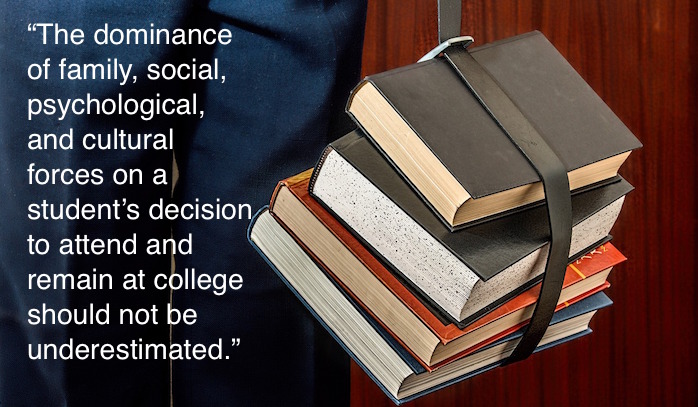Which Values Should a College Education Support?
Tim Goral published an extremely interesting interview with former president of the Appalachian College Association, Alice Brown, in University Business last month.
Ms. Brown’s comments reflected the wisdom of a professional who had served for 15 years leading a consortium of 35 private, liberal arts colleges in North Carolina, Tennessee, Virginia and West Virginia. Her remarks were wide-ranging but one set in particular stood out above the rest. Ms. Brown claimed that “the central Appalachian region has a unique character – the students have different needs and different goals.”
Ms. Brown explained that students in her college consortium “come from a different culture.” She suggested that “the culture is very family oriented . . It’s a culture that doesn’t give kids a lot of experiences in the outside world. They come from a closed culture and they can continue to get that at a small college.”
Ms. Brown argued that this need reinforced the value proposition for small, rural liberal arts colleges that provide a nurturing climate crafted to encourage student success. These colleges did so on terms acceptable to the cultural and social environment into which these students were born and to which they hope to return.
The dominance of family, social, psychological and cultural forces on a student’s decision to attend and remain at college should not be underestimated.
Higher education leadership at two- and four-year colleges in Massachusetts have conveyed to me separately and repeatedly the same story.For many of their students, success means something different than the stereotypical views of hyper-competitive students angling for admission to Princeton before accepting a seat in a future admissions class at Yale Law.
For many American students, their ambition is not dramatically different than among the most competitive students in any admissions class. The best and brightest students can come from anywhere. But the differences can be magnified when shaped by geography, the ability to handle debt, the need to support themselves and others, and the reasons for seeking a college degree. It’s often more pragmatic than broadening.
As one group of community college counselors reported in a conversation with me about how best to create a seamless transfer pathway, it’s often impossible for a Boston–born student to imagine success beyond a transfer to the local four-year public, U-Mass/Boston. There’s nothing wrong with this ambition, especially given the amazing work undertaken at the University. But the failure – if there is one – is in the narrowness in how the transfer student approaches the goal of a four-year degree.
The counselors reported that it goes well beyond finances to include the practicality and insularity that comes with tribal ties to family, neighborhood, culture and region, whether rural or urban.
UMass is logical because it has a good educational program at a stop on the MBTA subway line. It makes sense to a student whose mindset reflects the familial and cultural values that inform their decision and reinforce their sense of self that may extend only as far as the end of the subway.
This raises an interesting policy question.
If the purpose of American higher education is broader than workforce training, what values, if any, does this education support? Should colleges and universities enforce the cultural and social norms of their region – or at least their market draw – or should they teach to the broader values in American society? Is the purpose of American higher education principally to create global citizens?
Are critics of colleges and universities who “coddle” their students with elaborate safety nets in a nurturing environment really missing the point when the very success of student service programs is measured by metrics upon which accreditors, state and federal regulators, consumers, parents, students and graduates judge them?
If a student feels alienated from the mainstream campus culture, the isolation typically conveyed by many first-time freshman as “homesickness” can have a dramatic impact in areas like retention. Yet we know that graduation rates are highest when American colleges and universities match their educational program with student service support and employment after graduation. It makes the value proposition clear to students and their families.
It may be that residence life programs must serve two masters. The first is to be certain that college shapes, defines and supports a constantly evolving understanding of American values in a global society across its academic and residence life programs. But it may also be true that to do so colleges and universities must better understand the competing claims tugging at students drawn from the splendid parochialism of their upbringing.
For many of us, there seems to be a growing chasm between the coarse, vulgar individualism of polarized, partisan political behavior in American society and the best values shaped by its imperfect Founders. Colleges and universities have a critical role to play in setting the stage to better align social, familial and cultural values to the more endearing traditions in American society before we muck them up any further.


